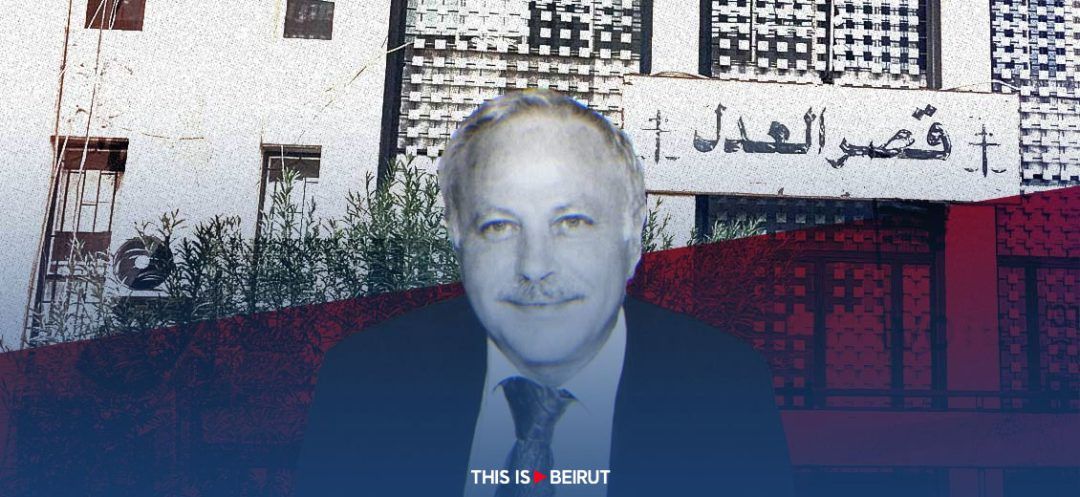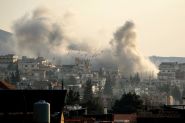
Jamal Hajjar is to succeed Ghassan Oueidate as the prosecutor general at the Court of Cassation. It would be the latest politico-judicial attempt by officials to ensure that "delicate" cases concerning them remain dormant. That's what This is Beirut has learned from well-informed sources. What is really happening behind the scenes? What are the Executive and the Judiciary cooking?
The impending end of the mandate of the prosecutor general at the Court of Cassation, Ghassan Oueidate, seems to worry some political leaders, among those who are "charged in large-scale cases, both nationally and internationally, and who are so far 'covered' by the prosecutor of the Republic." This comment, from sources close to the Palace of Justice, reflects the ongoing negotiations to appoint a replacement for the prosecutor of the Republic.
In other words, and considering the numerous "delicate" cases, which involve the responsibility of many of them and are tucked away in Oueidate's drawers — as told to This is Beirut — political officials are pulling out all the stops to ensure that Judge Jamal Hajjar, president of the 6th criminal chamber of the Court of Cassation, ascends to the head of the Public Prosecution. A magistrate who is not supposed to give them any trouble.
Seventeen days separate them from the retirement of the prosecutor general on February 22. Time is not on their side. "A second Oueidate (embodied by Hajjar), in exchange for the filling of some vacant positions within the judiciary: such is the deal currently being sought by the stakeholders, and, more particularly, the Caretaker Minister of Justice and the Supreme Judicial Council," according to the same source.
In the circles of the Supreme Judicial Council, when contacted by This is Beirut, the information was not entirely denied, but the "transactional" aspect of the matter was rejected: "It is no secret that the Supreme Judicial Council is working with the Ministry of Justice to fill five key vacant positions, particularly within the Public Prosecution, Judicial Inspection, and Military Prosecution. However, this process has currently been suspended due to the justified absence and force majeure of one of the Supreme Judicial Council members at meetings," according to the sources interviewed. They added, "Interpretations of this initiative are varied and can go in any direction. The Supreme Judicial Council is not involved in this kind of 'deal.'"
Legal Silence and Interested Interpretations
The Law on Judicial Magistrature of September 16, 1983, is clear regarding the appointment, by ministerial decree, of the prosecutor general at the Court of Cassation (Articles 26 and 31 of the law). The problem arises in the event of a vacancy in the position. All legal experts agree that the Council of Ministers must proceed with the appointment of the prosecutor general upon the proposal of the Minister of Justice. "With the current government being resigned and not enjoying the confidence of Parliament, its functions are limited exclusively to dealing with current affairs. Any appointment is therefore considered illegal," emphasizes former President of the Council of State, Chucri Sader.
Faced with this scenario, legal opinions are divided. Some legal experts consulted by This is Beirut believe that, in such a case, the solution lies in a temporary assignment, jointly decided by the Supreme Judicial Council and the Minister of Justice. A solution that, it should be recalled, Judge Jamal Hajjar refused when it was suggested to form a plenary assembly, which has been difficult to assemble since the blocking, since March 2020, of the judicial transfer project by former President Michel Aoun.
A third option, based on the interpretation of Articles 24, 25, 26, and 28 (the latter also referring to Articles 19, 20, and 21) of the Law on Judicial Magistrature, would allow, according to certain judicial sources, the first president of the Court of Cassation (who is also the president of the Supreme Judicial Council), Souheil Abboud, to appoint a magistrate at the head of the Public Prosecution. This magistrate would be the president of one of the chambers of the Court of Cassation or a counselor at the Court of Cassation.
According to a judicial source, these last two alternatives, namely the assignment of a magistrate delegated by the Supreme Judicial Council and the Caretaker Minister of Justice, Henri Khoury, and the appointment by the president of the Supreme Judicial Council, are "absolutely illegal and concern only ordinary judges, not the prosecutor general of the Republic."
According to this source, the laws (especially Article 36 of the Law on Judicial Magistrature) provide that "in the absence of being appointed by a decree issued by the Council of Ministers, the prosecutor is replaced by the highest-ranking magistrate among the judges of the same institution," which in this case is the Public Prosecution. However, the highest-ranking judge is the president of the Institute of Judicial Studies, Nada Dakroub, a Shiite (this clarification is necessary because it is known that, since the Taif Agreement, the position of prosecutor general at the Court of Cassation is traditionally given to a Sunni magistrate).
Some time ago, there was a rumor that Magistrate Dakroub, also the niece of Parliament Speaker Nabih Berri, had refused to assume such responsibility, but judicial sources confirmed to This is Beirut that this rumor is unfounded: "Ms. Dakroub discussed with the officials, assuring them that she is ready to assume the role of prosecutor." It seems that it is Berri who does not want her to take on this mission.
Today, as discussions revolve around whether or not the procedures applicable to ensure the interim at the head of the Public Prosecution are compliant with the existing laws, the stakeholders disregard these laws and try to circumvent them to protect themselves against the judicial proceedings they are subject to by ensuring that Judge Jamal succeeds Prosecutor Oueidate.
Read more



Comments